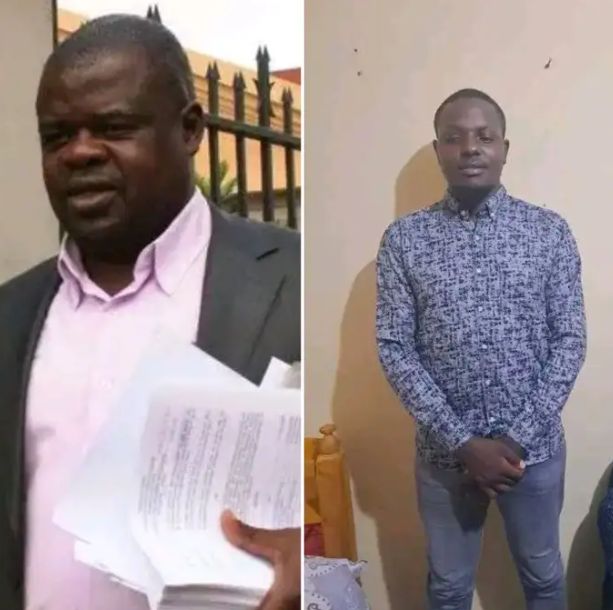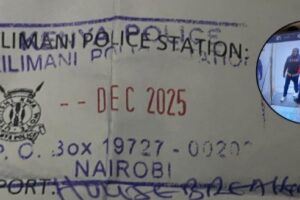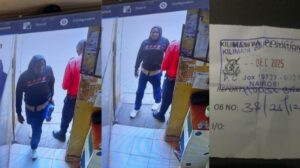Renowned cartoonist Kibet Bull has finally addressed the swirling rumors and public speculation about the circumstances surrounding his recent abduction.
In a bid to set the record straight, Kibet firmly denied the allegations that Busia Senator Okiya Omtatah was involved in his kidnapping.
He stated, “I want to clean the air. I don’t think Okiya Omtatah was involved in my abduction. Stop blaming him.” Kibet emphasized that the finger-pointing at the senator was baseless and was diverting attention from the real issues at hand.
The rumors linking Omtatah to Kibet’s abduction had been circulating online, fueled by the senator’s involvement in politically sensitive matters.

As a vocal critic of the government and an advocate for human rights, Omtatah’s name had been dragged into the controversy, with some speculating that his activism might have led to the abduction.
However, Kibet’s direct statement put these rumors to rest, making it clear that they were not only untrue but harmful in their attempt to mislead the public and create unnecessary tension.
Kibet’s account of the abduction’s lead-up revealed even more chilling details about the lengths the perpetrators were willing to go to in their pursuit of him.
Two days before the abduction, Kibet’s brother was kidnapped in a calculated attempt to draw Kibet out of hiding.
The kidnappers even broke into the house of Kibet’s landlord, mistakenly believing it was Kibet’s residence.
This mistake underscores the seriousness of the plot and the extent to which the perpetrators were willing to go, showing that the abduction was far from a random act.
The cartoonist’s public clarification comes at a time when concerns about the safety of outspoken critics and activists in Kenya are growing.
Kibet’s abduction had already sparked a public outcry, with many questioning the state of human rights and freedom of expression in the country.
The rumors about Omtatah’s involvement in the incident only served to add fuel to the fire, raising questions about the ability of those in power to protect citizens, especially those who dare to speak out.
Kibet’s decision to speak out and correct the narrative is important, as it highlights the danger of jumping to conclusions based on rumors rather than verifiable evidence.
His experience is a stark reminder that, in times of political tension, assumptions can easily be made, and innocent people can be wrongfully implicated.
Kibet’s revelation that his brother was used as bait in the abduction raises serious concerns about the growing trend of politically motivated harassment and abductions in Kenya.
Activists, cartoonists, and commentators, who often criticize those in power, have increasingly become targets of intimidation, kidnappings, and other forms of violence.
This troubling trend calls for urgent reforms and comprehensive investigations to ensure that the rights of all citizens are respected and protected.
Kibet’s statement not only clears the air regarding the abduction but also serves as a call to action for the government and human rights organizations to address the escalating threats against those who challenge the status quo.
It is vital for Kenya’s democracy that the voices of activists, critics, and artists remain protected, and that justice is served for those who are subjected to politically motivated violence.





















Add Comment